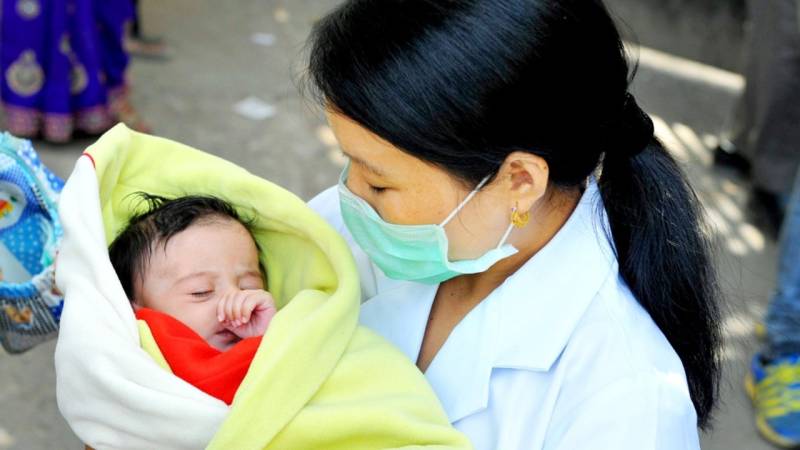'Strong evidence' mothers can transmit virus to newborns

Stay tuned with 24 News HD Android App

There is "strong evidence" that COVID-19- positive mothers can pass the virus on to their unborn infants, scientists said Thursday, in findings that could affect how pregnant women are shielded during the pandemic.
While there have been isolated cases of babies infected with the virus, the findings show the strongest link yet between mother and infant transmission. Researchers in Italy studied 31 pregnant women hospitalised with COVID-19, and found the virus in an at-term placenta, umbilical cord, the vagina of one woman and in breast milk.
They also identified specific COVID-19 antibodies in the umbilical cords of several pregnant women as well as in milk specimens.
Claudio Fenizia, from the University of Milan and lead study author, said the findings "strongly suggest" that in-vitro transmission is possible. "Given the number of infected people worldwide, the number of women that could be affected by this could be potentially very high," he told AFP.
Fenizia stressed that none of the infants born during the study period tested positive for COVID-19. "Although in utero transmission seems to be possible, it is too early to clearly assess the risk and potential consequences," he said.
The World Health Organization said last month that new mothers infected with COVID-19 should continue breastfeeding. "We know that children are at relatively low-risk of COVID-19, but are at high risk of numerous other diseases and conditions that breastfeeding prevents," said WHO chief Tedros Adhanom Ghebreyesus.
Among other findings, the team identified a specific inflammatory response triggered by COVID-19 in the women's placenta and umbilical cord blood plasma. Fenizia said that the women studied were all in their third trimester, given the timeframe of Italy's epidemic, adding that more research is currently under way among COVID-19-positive women in the early stages of pregnancy.
"Our study is aimed at raising awareness and inviting the scientific community to consider the pregnancy in positive women as an urgent topic to further characterise and dissect," he said. "I believe that promoting prevention is the safer advice we could possibly give right now for these patients."
The study was released during a week-long International AIDS Conference, held online for the first time in its history due to the pandemic.
